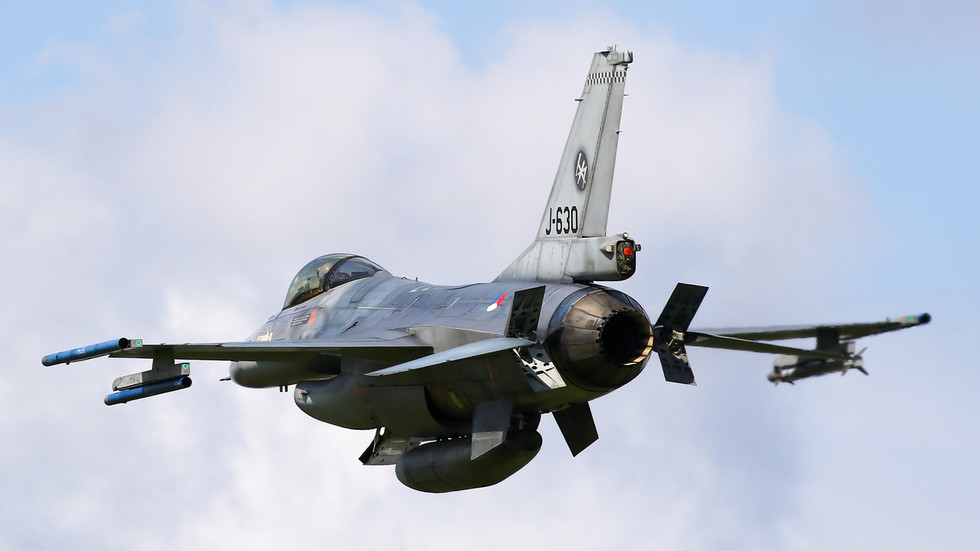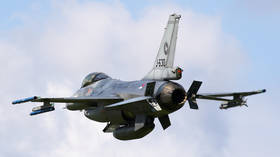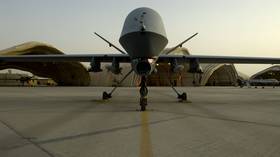
The Netherlands has decided to declassify data on airstrikes in the Middle East after media exposé

FILE PHOTO: A Dutch Air Force F-16 fighter jet. © C. Van Grinsven / SOPA Images / LightRocket via Getty Images
The Dutch government agreed to release previously classified information about its air sorties in Iraq and Syria, after media exposed as false claims that no civilians were killed in a 2016 strike by the European nation on a building in Mosul, Iraq. A US military assessment had identified the target as a terrorist HQ.
The database, released on Thursday, details Dutch F-16 missions between October 2014 and December 2018, which were part of Operation Inherent Resolve, a US-led military campaign against Islamic State (IS, formerly ISIS). It disclosed over 2,200 weapon deployments relating to over 600 airstrikes. The Dutch Ministry of Defence also pledged to conduct its own investigation into suspected killings of civilians by anti-IS coalition forces.
The move was in reaction to an exposé published on the same day by the Dutch public broadcaster NOS, its current affairs program Nieuwsuur, and the newspaper NRC. It provides evidence that at least seven civilians, including a three-year-old girl, were killed in a Dutch airstrike at a residential building in Mosul on March 22, 2016. The strike hit a residence outside of the campus of Mosul University, where academics and their families were housed.

Read more
The raid was previously detailed in a 2017 assessment by the US Central Command (CENTCOM), which was obtained by The New York Times and released in 2021. CENTCOM claimed that the building was used by IS militants as a military headquarters and that no civilians were allowed into the building.
The Dutch media research, which was carried out with the help of Airwars, a London-based NGO which records claims of civilian harm in airstrikes, found eyewitnesses who contradicted the US account.
Residents of the building said militants were present in the neighborhood because they had their wives and children housed in the homes of people who’d fled from Mosul. But they never detected any military activity and believe the US had every opportunity to know this, considering that the coalition forces constantly flew surveillance drones over the area.
The Dutch government deflected accusations of underreporting civilian casualties, after national media reported in 2019 that at least 70 non-combatants had been killed in a 2015 air strike on the Iraqi city of Hawija. Prime Minister Mark Rutte referred to CENTCOM at the time, stating that they were “the arbiter in such cases” and have “all the knowledge and experience” to make assessments authoritatively.




